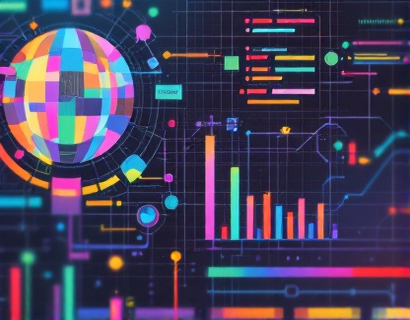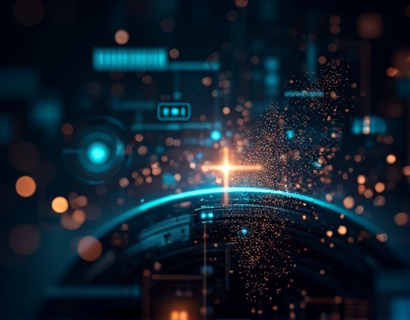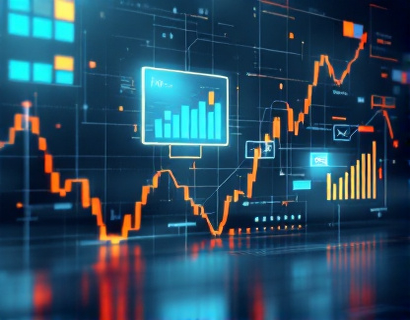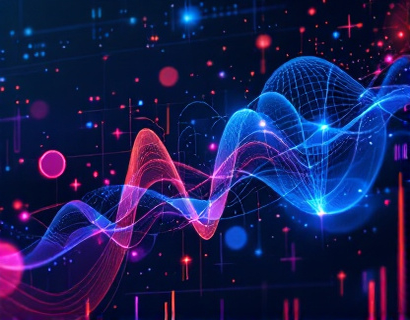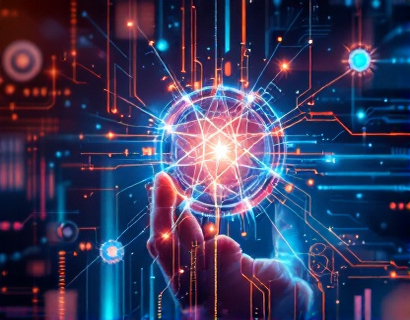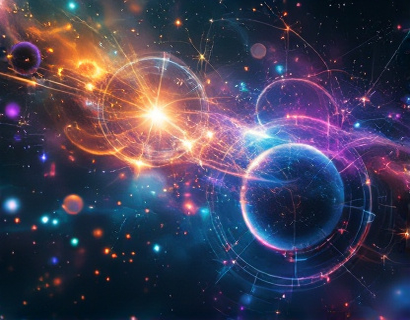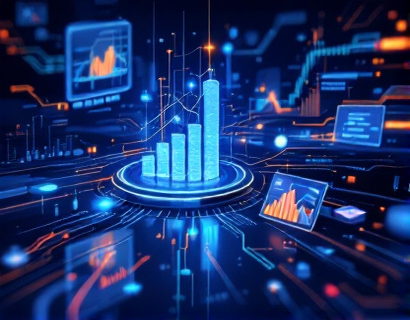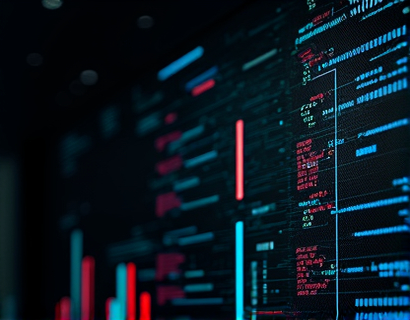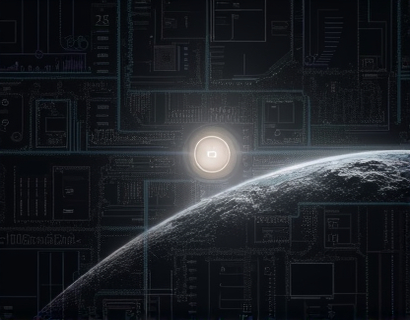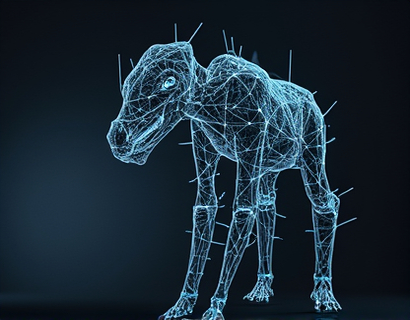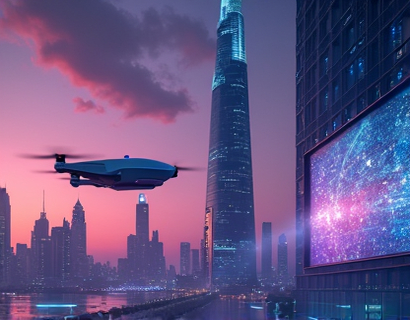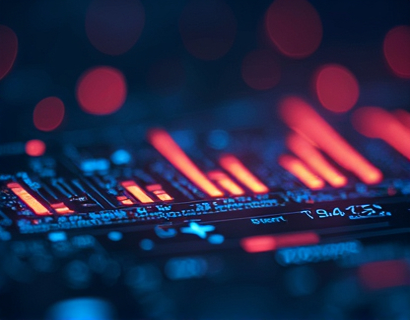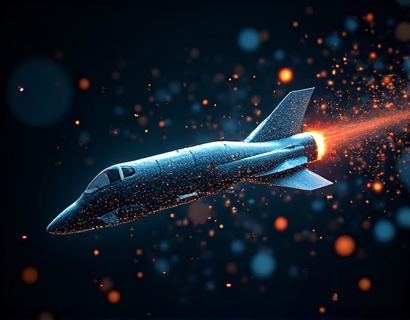The Synergy of AI and Crypto: Pioneering Digital Transformation
The intersection of artificial intelligence and cryptocurrency is giving birth to a new era of digital transformation, one that promises to redefine how we interact with digital solutions and experience the power of blockchain technology. This fusion, often referred to as tech fusion, is not just an evolution but a revolution in the way we approach and utilize digital platforms. As we delve into this topic, it's essential to understand the foundational technologies that are driving this change.
Understanding Blockchain Technology
Blockchain technology, at its core, is a decentralized ledger that records transactions across multiple computers in such a way that the registered transactions cannot be altered retroactively. This technology ensures transparency, security, and immutability, making it an ideal foundation for various applications beyond cryptocurrencies. The decentralized nature of blockchain eliminates the need for intermediaries, reducing costs and increasing efficiency.
Artificial Intelligence: The Brain Behind the Curtain
Artificial intelligence, on the other hand, encompasses a range of technologies designed to simulate human intelligence processes, including learning, reasoning, and self-correction. Machine learning, a subset of AI, focuses on building systems that can learn from and make predictions based on data. When combined with blockchain, AI can enhance the functionality and user experience of digital platforms, creating a synergy that is both powerful and transformative.
The Fusion of Blockchain and AI
The merging of blockchain and AI creates a robust framework for developing advanced digital solutions. One of the primary benefits of this fusion is the ability to create smart contracts that are not only self-executing but also intelligent. These smart contracts can automatically adapt their behavior based on real-time data analysis, making them more efficient and responsive to changing conditions.
For instance, in the realm of supply chain management, AI can analyze vast amounts of data to predict demand, optimize inventory, and identify potential bottlenecks. When integrated with blockchain, this data is recorded in a transparent and tamper-proof manner, ensuring that all parties have access to accurate and up-to-date information. This not only enhances trust but also streamlines operations, reducing costs and improving efficiency.
Enhancing User Experiences through AI-Driven Blockchain Solutions
The combination of AI and blockchain is particularly potent in enhancing user experiences. AI algorithms can analyze user behavior and preferences to personalize services, making them more intuitive and user-friendly. For example, in decentralized finance (DeFi) platforms, AI can help users find the best investment opportunities, manage risks, and automate trading strategies. This level of personalization and automation significantly improves the user experience, making complex financial tasks more accessible and manageable.
Moreover, AI can enhance security measures on blockchain platforms. By detecting anomalies and potential threats in real-time, AI can help prevent fraud and cyberattacks. This is crucial in maintaining the integrity and trustworthiness of blockchain-based systems. For instance, AI-powered security solutions can monitor transaction patterns and flag suspicious activities, ensuring that the network remains secure and reliable.
Decentralized Applications and AI Integration
Decentralized applications (dApps) are a prime example of how AI and blockchain can work together to create innovative digital solutions. dApps leverage blockchain's decentralized nature to provide services that are not controlled by any single entity. When AI is integrated into these applications, the possibilities expand exponentially.
Consider a decentralized social media platform that uses AI to moderate content, ensuring that harmful or inappropriate posts are identified and removed efficiently. The AI can learn from user feedback and adapt its moderation algorithms over time, creating a safer and more engaging community. Additionally, AI can enhance user interactions by recommending content based on individual preferences, thereby improving the overall user experience.
Smart Cities and AI-Enhanced Blockchain Solutions
The impact of AI and blockchain extends beyond financial and social applications to urban planning and smart city initiatives. AI can optimize resource management, traffic flow, and energy consumption, while blockchain ensures that data is securely and transparently shared among various stakeholders. For example, a smart city could use AI to predict traffic congestion and adjust traffic signals in real-time to alleviate bottlenecks. Blockchain can then record these adjustments and the resulting improvements, providing a transparent and verifiable record of the city's efforts to enhance mobility and reduce pollution.
Furthermore, AI-driven blockchain solutions can facilitate the creation of digital identities that are secure, verifiable, and controllable by the individual. This is particularly important in smart cities where numerous services require authentication and verification. By combining AI with blockchain, cities can ensure that digital identities are robust against fraud and cyber threats, enhancing the overall security and efficiency of urban services.
Challenges and Considerations
While the potential of AI and blockchain is immense, there are several challenges that need to be addressed to fully realize their transformative power. One of the primary concerns is scalability. Both blockchain and AI require significant computational resources, and combining them can lead to performance bottlenecks. Researchers and developers are actively working on solutions such as sharding and layer 2 protocols to improve blockchain scalability, while advancements in AI hardware and algorithms are making machine learning more efficient.
Another challenge is the regulatory landscape. The intersection of AI and blockchain operates in a relatively uncharted territory, and regulatory frameworks are still evolving. Ensuring compliance with existing laws while advocating for supportive regulations is crucial for the adoption and growth of these technologies. Collaboration between industry stakeholders, policymakers, and technologists is essential to create a balanced and conducive environment for innovation.
The Future of AI and Crypto: A Vision
Looking ahead, the future of AI and cryptocurrency is bright, with numerous exciting developments on the horizon. One area of focus is the integration of AI with other blockchain innovations, such as non-fungible tokens (NFTs) and decentralized autonomous organizations (DAOs). AI can enhance the creation and management of NFTs by providing unique attributes and provenance, making them more valuable and sought after. In the context of DAOs, AI can optimize decision-making processes, ensuring that governance is both efficient and democratic.
Additionally, the rise of edge computing, which brings computation closer to the data source, will complement the strengths of both AI and blockchain. By processing data locally and only sending necessary insights to the blockchain, edge computing can reduce latency and improve the overall performance of AI-driven blockchain applications.
The convergence of AI and cryptocurrency is not just a technological trend but a fundamental shift in how we approach digital transformation. As these technologies continue to evolve and mature, they will play a pivotal role in shaping a more secure, efficient, and user-centric digital world. For tech-savvy individuals and anyone interested in the future of digital solutions, understanding and embracing this synergy is essential for staying ahead in the rapidly changing landscape of technology.




